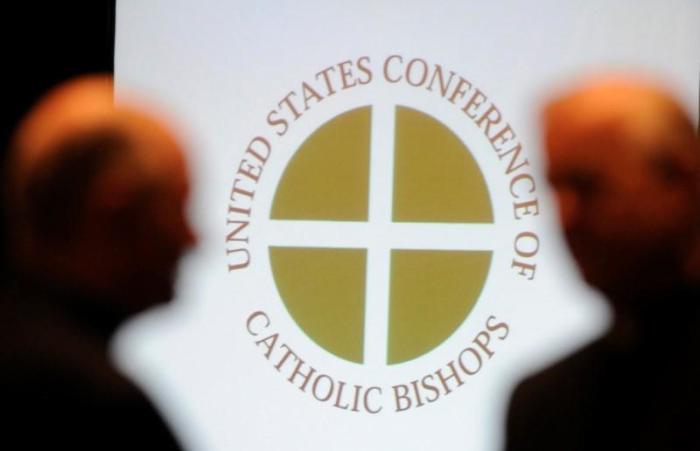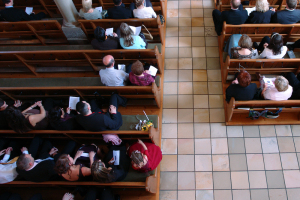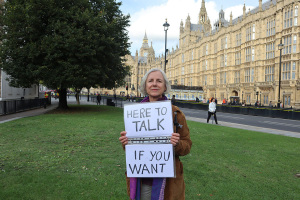Catholic bishops to move ahead with drafting document on worthiness to receive communion

Catholic bishops have voted to approve the continued drafting of a controversial document that would advise Catholic politicians who support abortion to refrain from taking communion.
As expected, the United States Conference of Catholic Bishops discussed the document at its general assembly meeting this week, which took place virtually. Discussion on the proposed document took place Thursday and the vote tally on the question of whether “the body of bishop[s] approve the request of the Committee on Doctrine to proceed with the drafting of a formal statement on the meaning of the Eucharist in the life of the Church” was reported Friday.
An overwhelming majority of the bishops (168) voted in favor of proceeding with the draft document, while 55 voted against proceeding. Six bishops abstained from the vote. Now that the document has been approved, bishops will continue working on the document, which will be presented to the public at a later date. While the document will provide guidelines for the reception of communion, it will leave “decisions on withholding Communion up to individual bishops.”
While the vote was expected to pass, the number of dissenting votes was smaller than expected. Last month, more than 60 bishops wrote a letter to Archbishop Jose Gomez calling for the delay of the debate over whether pro-abortion Catholic politicians should receive communion, citing concerns that implementing a national policy on the matter would pose a threat to the unity of the Church.
The news of the vote comes just two days after the pro-life group Students for Life Action held “Fight for Life & Faith” rallies outside cathedrals in seven cities to urge Catholic bishops to approve the drafting of the document. At the rally in Washington, D.C., Students for Life of America President Kristan Hawkins accused Catholic Church leadership of sending “mixed messages about abortion” by failing to implement an explicit policy barring pro-abortion Catholic politicians from receiving communion.
According to Hawkins, allowing pro-abortion Catholic politicians to receive communion suggests that “our Church must not really mean it when we talk about abortion.” Maintaining that “supporting the murder of innocent children is incompatible with the faithful practice of Catholicism,” she called on Church leaders to “act like it” by supporting the document.
Supporters of withholding communion from pro-abortion Catholic politicians, both inside and outside the Church hierarchy, point to the Church’s Code of Canon Law as the justification for their position. The Code of Canon Law states that those who are “obstinately persevering in manifest grave sin are not to be admitted to Holy Communion.”
A 2004 letter from then-Cardinal Joseph Ratzinger, who served as prefect of the Congregation for the Doctrine of the Faith of the Catholic Church at the time, explained to U.S. bishops that “the Church teaches that abortion or euthanasia is a grave sin.” He quoted from the Encyclical Letter Evangelium vitae, which states: “In the case of an intrinsically unjust law, such as a law permitting abortion or euthanasia, it is therefore never licit to obey it or to ‘take part in a propaganda campaign in favor of such a law or vote in favor of it.”
Meanwhile, Bishop Robert McElroy, an opponent of withholding communion from pro-abortion Catholic politicians, contends that depriving “political leaders of Eucharist based on their public policy stance” amounts to a “weaponization of [the] eucharist.”
The debate over whether pro-abortion Catholic politicians should receive communion has intensified following the election of President Joe Biden, a pro-abortion Catholic who attends mass regularly. As he campaigned for president ahead of the 2020 presidential election, a priest in South Carolina refused to serve Biden communion due to his abortion advocacy.
On the other hand, Cardinal Wilton Gregory, who serves as Archbishop of the Archdiocese of Washington, said that he would not deny Biden communion because of his support for abortion. Gregory was one of two bishops that Students for Life of America sought to “rally & encourage” at “Fight for Life & Faith” rallies because they “have been working to stall and stifle efforts by their fellows to address the scandal.”
Ryan Foley is a reporter for The Christian Post. He can be reached at: ryan.foley@christianpost.com





























